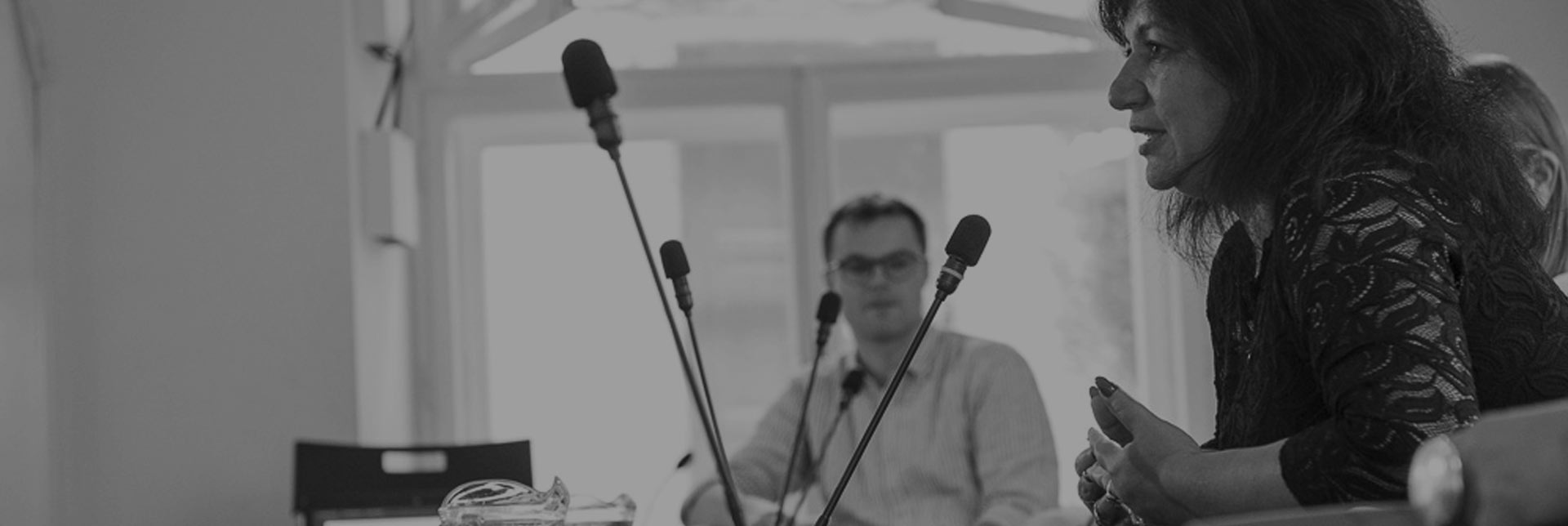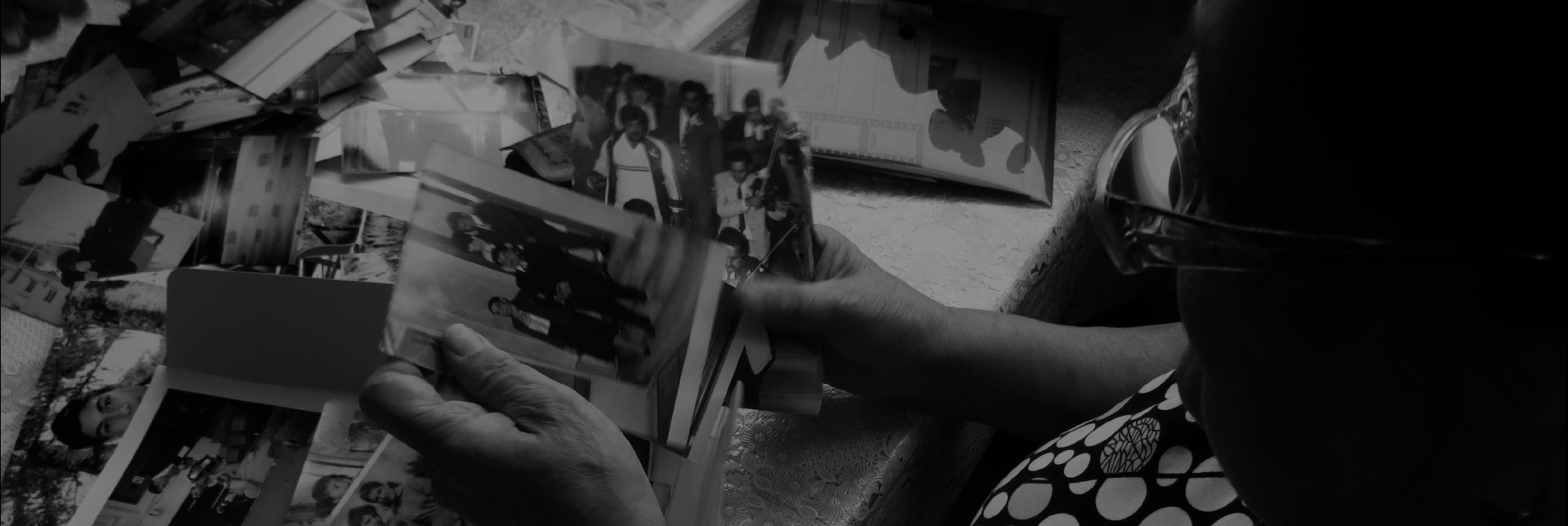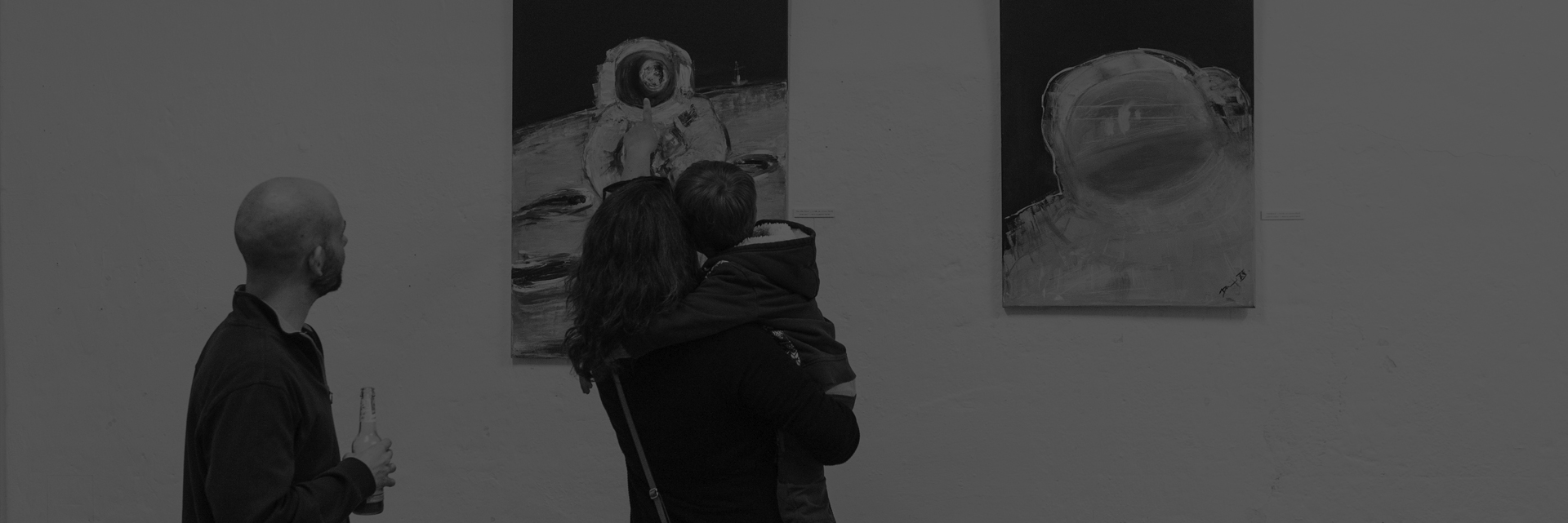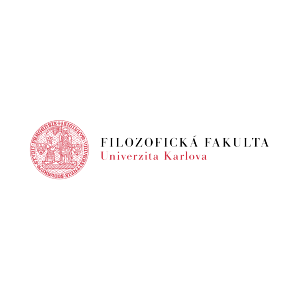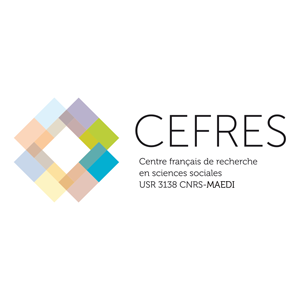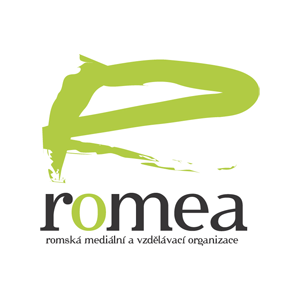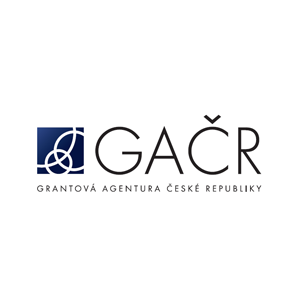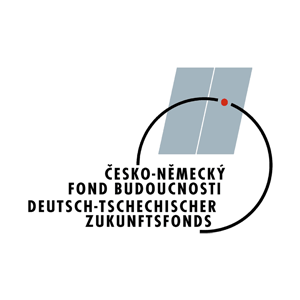Romani History – Methods, Sources, Ethics
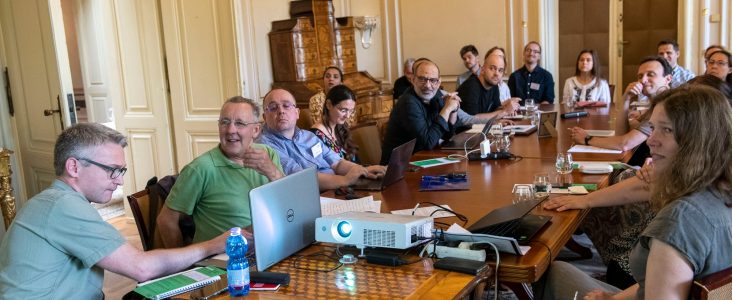
8–9 June 2022, Villa Lanna, Prague
Organizers: Ari Joskowicz, Kateřina Čapková, Martin Fotta, Helena Sadílková
Application deadline: April 15, 2022
On the sixth anniversary of the founding of the Prague Forum for Romani Histories, this workshop sets out to take stock of our collective efforts to promote the academic study of Romani history. Until recently research of Romani histories stood in the shadow of the work ethnologists, philologists, musicologists, anthropologists, and sociologists have done in Romani Studies. In the last decade, however, new projects have contributed significantly to the creation of an emergent field of Romani history. The workshop explores how research on the Romani past can illuminate and enrich broader issues in historical research. At the same time, it seeks to interrogate the methodological, ethical, and practical challenges of historical research in the context of Romani studies.
The workshop wants to focus in particular on the responsibilities Romani and non-Romani historians have in regard to Romani narratives and the limits of their ability to address them; how academic work can be understood in terms of social capital and gatekeeping when studying populations that have historically been deprived of avenues for economic and social mobility; ethical questions about the use of private documents and oral history research in case of people who face discrimination and state surveillance; and finally the ability of the digital humanities to either mitigate or exacerbate inequalities in access to information and privacy rights.
To explore new paths and persistent challenges in the field, we ask for the submission of papers that deal with concrete examples from Romani history (irrespective of period or region) that allow for further methodological reflection. It has become a truism in the field that it is difficult to discover unmediated access to Romani voices in archives. We would like to explore these erasures in the context of larger discussions in other history subfields about silenced voices, unacknowledged methodological assumptions, and the history of archives. Contributions can also reflect on the history of historiography and the role historians play in the complicated politics of Romani representation.
The following questions reflect some of the concerns that motivate our call:
- How does Romani history relate to other historical sub-fields? What is the role of academic history in Romani studies? How does it relate to other disciplines?
- How did historians and how should historians think of their relationship to the subjects of their history? Does the writing of history express the uneven power relations between the mostly non-Romani historians and the Romani communities they describe? What are the challenges the Romani historians face in the mostly non-Romani academic world? What are historical strategies and best practices in other fields that might address such issues?
- What is the relationship between Romani history and Holocaust studies? Since research on Nazi crimes is the only subject where academic historians dominate in the larger field of Romani studies, how does this influence our understanding of Romani history?
- How does the study of the Romani past contribute to various and competing attempts to rethink the history of Europe, the Americas, or the Mediterranean? How does Romani history address recent attempts to think about the Atlantic world, the imperial nature of many self-defined nation states, and the legacies of Europe’s land-based empires? How does Romani history reflect the turns and shifts within the discipline at large?
- Which normative questions emerge in the practice of Romani history compared to related subfields? Does it matter, for example, that researchers who conduct interviews compete with those who pay interviewees (more) for their willingness to talk to them? Do we need more concrete guidelines for ethical conduct in Romani history? Does Romani history need to deal differently from other subfields in European history with issues of anonymization, privacy, and digitization?
- How does the relationship between historians and archivists shape the field? What is the role of historians as users and creators of archival collections and as lobbyists for their funding?
- Which gatekeepers shape the practice of Romani history? How do different funding structures and ways to organize scholarship in different national contexts shape Romani studies? What is the role of policy-making and activism for the practice of Romani history?
- How do debates on the constructed nature of ethnic categories and controversies surrounding nomenclature open or close avenues for research?
- What is the institutional framework for Romani histories research and does the history of this research infrastructure help us to understand some of the challenges of todays situation of this subfield?
Please send an abstract of your paper (approx. 300 words) and your CV until 15 April 2022 to romanihistories@usd.cas.cz
Applicants will be informed by 22 April 2022.
Accommodation and travel cost:
We can offer free accommodation (thanks to the funding of the Strategy 21 AV – Global Conflicts and Local Interaction and thanks to the Project of the Grant Agency of the Czech Republic, no. 19-26638X) .
Funding will be also available to reimburse the travel costs for participants from Europe.
Partners:
Vanderbilt University
Institute of Ethnology, Czech Academy of Sciences
Romani Studies at the Central European Studies Department, Charles University
Workshop „Romani History – Methods, Sources, Ethics“
Prague Forum for Romani Histories at the Institute of Contemporary History, Czech Academy of Sciences
in cooperation with Vanderbilt University, Institute of Ethnology of the Czech Academy of Sciences, and Seminar of Romani Studies at Charles University
Prague, 8-9 June 2022, Villa Lanna (V Sadech 1, Prague 6)
Program
8 June, 2022
14:30 Opening of the workshop
14:45 – 16:15 Panel 1: Archives and the Making of History
Michael Stewart: Police Archives as a Source of Romani History
Ari Joskowicz: May 16, 1944 – The Creation and Interpretation of a Historical Event
coffee break
16:45-19:00 Panel 2: Representing History
Dezso Mate: On the Interface of Romani Memory and Knowledge Production
Hazel Marsh: “Gypsy Music“ in the UK and the Ethics of Representation
Lada Viková: Responsibility and Dignity in Research on the Romani Holocaust
dinner at Villa Lanna
9 June 2022
9:00-10:30 Panel 3: Challenging Historiographies
Ann Ostendorf: Historians, or Scholars of History. On the “Ahistoriography” of Romani American History
Danijel Vojak: „Observers“ or “Bystanders” of History. On the Research(ing) of Roma History in Croatian Historiography
coffee break
11:00-12:30 Panel 4: Accessing Precarious Identities
Markéta Hajská: Differentiation between Individual Romani Groups in the Archival Sources
Hanna Abakunova: Persecution of the Roma during the World War II – Romani Voices in Ukrainian Archives
12:30 – 13:00
Concluding remarks and discussion
lunch at Villa Lanna
Invitation for an evening program:
Launch of the double issue of Czech Romani studies journal Romano džaniben on Roma in Latin America (guest editors: Martin Fotta, Mariana Sabino Salazar)
Venue and time: Café Lajka (U Akademie 366/11, Prague 7), 19:00
To participate, please e-mail marek.jandak@seznam.cz
The conference takes place in Villa Lanna.
http://www.vila-lanna.cz
V Sadech 1
Prague 6
phone: +420 224 321 278
GPS: 50° 6′ 9.022″N, 14° 24′ 25.341″E
How to get there
From the airport
At the bus stop for the 119 bus, just outside the airport front doors, buy a 40crown ticket from the yellow-orange ticket machine; it will cover for 90 minutes of travel by bus, tram, and Metro (underground) in Prague. Take the 119 bus to the Nádraží Veleslavín Metro station, then go down the stairs to the Metro, and travel to the station Hradčanská. Villa Lanna is a ten-minute from the Hradčanská station (see below).
From the train or the coach station
Trains arrive at Prague Main Station (Praha Hlavní nádraží). From a yellow-orange ticket machine, buy a basic ticket for 40 crowns for 90 minutes of travel by all means of transport in Prague.
Enter the Metro directly at the train station, travel one station to Muzeum, and change onto the green line, which will take you to Hradčanská (the last stop before the Dejvice terminus). If travelling by coach, the Florenc bus station has its own Metro station: get onto the red line and change at Muzeum for the green line to Hradčanská. Villa Lanna is a ten-minute from the Hradčanská station (see below).
The ten-minute walk from Hradčanská station to Villa Lanna
Head for the ‘Bubenečská’ exit, walk straight down Bubenečská Street. At Ronald Reagan Street, with the US Ambassador’s residence on the corner, turn right. At the end of the street, turn left into Pelléova Street. At the end of this street, you’ll see Villa Lanna.
For further tram and Metro information, including timetables and trip planning, visit the Prague Public Transport website .
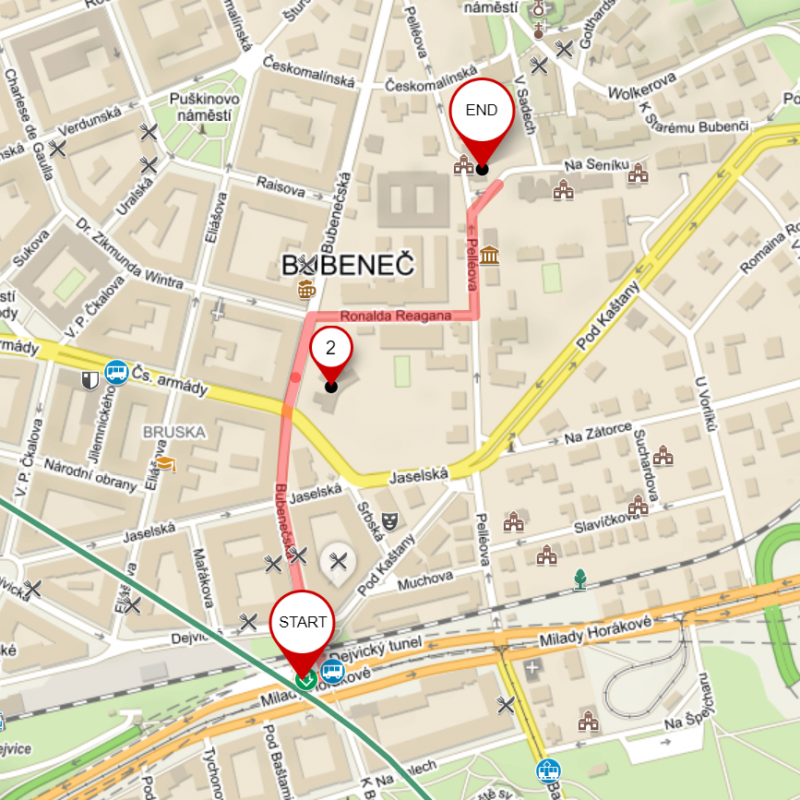 –
–


